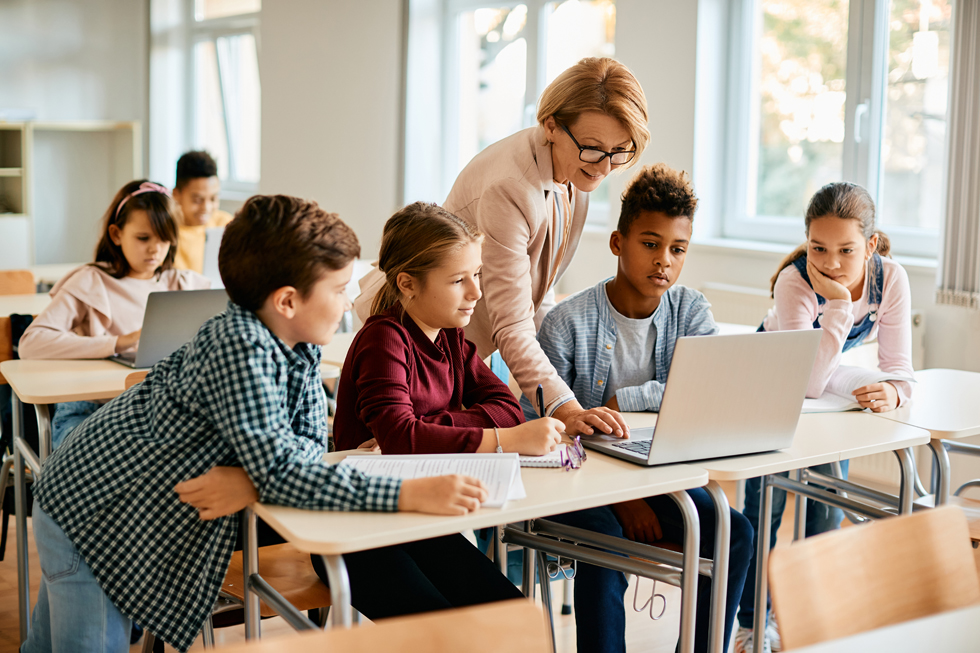The Effect of College Environments on Academic Success and Personal Well-Being
The school atmosphere substantially affects both scholastic success and personal health, encompassing aspects such as physical layout, classroom environment, and social characteristics. The layout of academic rooms, consisting of all-natural lights and ergonomic furnishings, can enhance students' concentration and comfort. The high quality of teacher-student connections and the nature of peer communications play critical duties in fostering an ambience favorable to learning and emotional assistance. Understanding exactly how these various factors interaction to shape student end results increases vital concerns concerning enhancing academic settings for alternative development. Exactly how can institutions purposefully improve these facets to better sustain their pupils?
Physical Layout and Style
How does the physical layout and design of a school influence academic success? The arrangement and visual of an institution atmosphere can dramatically affect trainees' discovering results.
Natural lights and reliable air flow systems are pivotal in improving cognitive function and minimizing absenteeism. Studies have actually revealed that classrooms with adequate natural light enhance student focus and minimize sensations of drowsiness. Ergonomic furnishings tailored to pupils' needs can protect against physical discomfort, permitting for extended emphasis and interaction in scholastic activities.
Accessibility to outdoor rooms and aesthetically pleasing surroundings also play an important role - Save Temecula Schools. Green rooms and well-maintained college grounds offer possibilities for exercise and mental leisure, both of which are essential for maintaining high degrees of academic efficiency. Basically, a thoughtfully created physical environment can act as a catalyst for scholastic excellence, cultivating an atmosphere that supports both mentor and learning
Classroom Ambience
A positive class atmosphere is basic to achieving scholastic success. An atmosphere that cultivates a feeling of safety, inclusivity, and mutual regard encourages pupils to engage more proactively in their discovering procedures. The ambiance of a class, consisting of facets such as lighting, noise levels, and seating setups, can significantly impact pupil focus and motivation. A well-ventilated, well-lit class with minimal disturbances can improve cognitive function and reduce tension, therefore advertising better academic results.
Additionally, the class environment need to sustain a society of cooperation and open communication. They are more likely to involve deeply with the product and establish essential believing skills when pupils feel comfortable revealing their ideas and asking inquiries. Peer interactions and group tasks can enhance learning by cultivating and giving diverse point of views team effort
In addition, developing constant routines and clear expectations can produce an organized setting that permits students to concentrate on their researches. By decreasing unpredictability and providing a foreseeable framework, trainees can better handle their time and duties. Eventually, a positive class atmosphere not only boosts scholastic performance but likewise contributes to the overall wellness of trainees, preparing them for future instructional and individual undertakings.
Teacher-Student Relationships
Structure on the relevance of a favorable classroom environment, the connections in between educators and pupils play a critical role in shaping scholastic success. A healthy teacher-student partnership cultivates a finding out environment where pupils really feel valued, understood, and sustained, which considerably boosts their motivation and engagement. When trainees perceive their teachers as compassionate and approachable, they are more probable to take part actively in course and look for help when needed, contributing to a deeper understanding of the subject matter.

Effective interaction is key to supporting these partnerships. Teachers that use open, respectful, and consistent communication produce a foundation of count on. This count on allows pupils to share their concerns and ideas openly, cultivating a collective understanding environment. Basically, solid teacher-student connections are a foundation of YOURURL.com academic success, playing a crucial function in both academic success and individual growth.
Peer Interactions
Peer interactions substantially influence scholastic success by forming a trainee's social and cognitive advancement. Positive peer communications can improve a pupil's inspiration and involvement in scholastic tasks through joint learning and common support.

Effective peer communications also contribute to the growth of vital life abilities, such as problem, participation, and communication resolution. These social competencies are crucial for both academic success and personal health, link underscoring the importance of promoting positive peer dynamics within the school atmosphere.
Extracurricular Activities
Involving in extracurricular tasks plays a crucial role in a pupil's scholastic success and individual development. Research study consistently indicates that students who get involved in extracurricular tasks often tend to achieve higher academic performance.
Furthermore, extracurricular involvement fosters a feeling of belonging and community, which is important for personal health. Taking part in team tasks enables students to construct and strengthen social networks, boosting their social and psychological knowledge. These communications are vital for establishing social abilities that are advantageous in both future and academic expert settings.
Additionally, after-school activities provide a useful outlet for pupils to discover their interests and interests beyond the common curriculum. This exploration can result in the exploration of brand-new abilities and potential career courses, even more encouraging trainees to involve more deeply in their academic work. Finally, the role of extracurricular tasks expands beyond plain leisure; they are integral to fostering a holistic educational experience that promotes both academic success and individual development.
Conclusion
Altogether, the impact of school environments on both academic success and personal wellness is profound. Attentively made physical layouts and class, together with favorable teacher-student connections and constructive peer communications, substantially enhance pupil inspiration and interaction. Additionally, the visibility of supportive educators can mitigate stress and anxiety, fostering a supporting ambience for all natural growth. These components jointly emphasize the importance of creating and keeping optimal college environments for the benefit of trainees' scholastic and personal growth.
Inevitably, a favorable class environment not just improves look at this now academic efficiency but additionally adds to the general wellness of students, preparing them for future instructional and personal undertakings.
